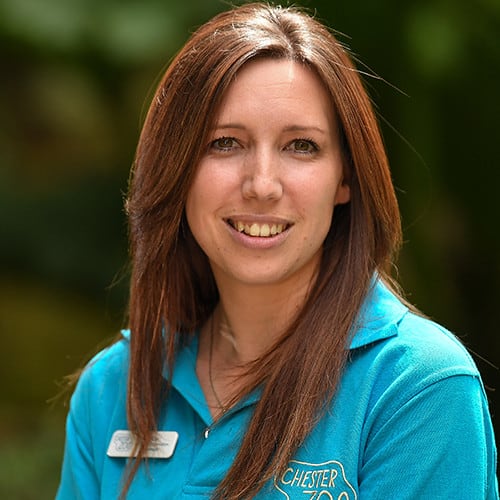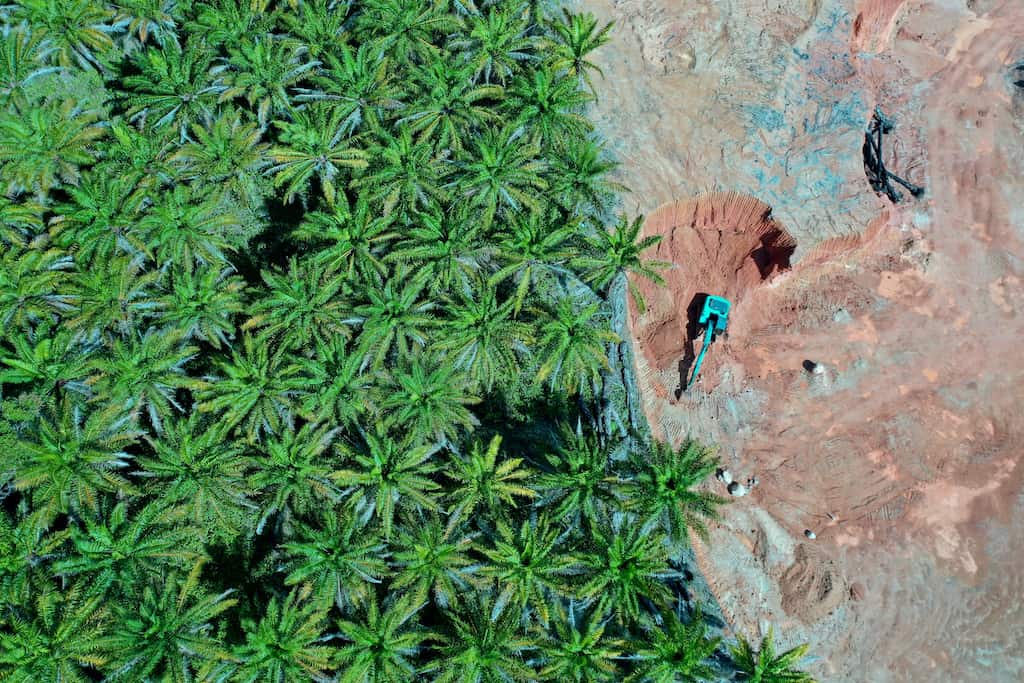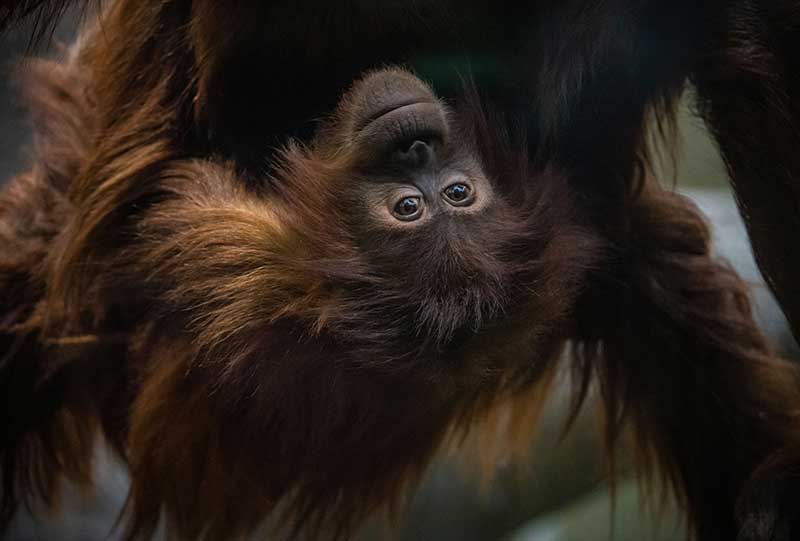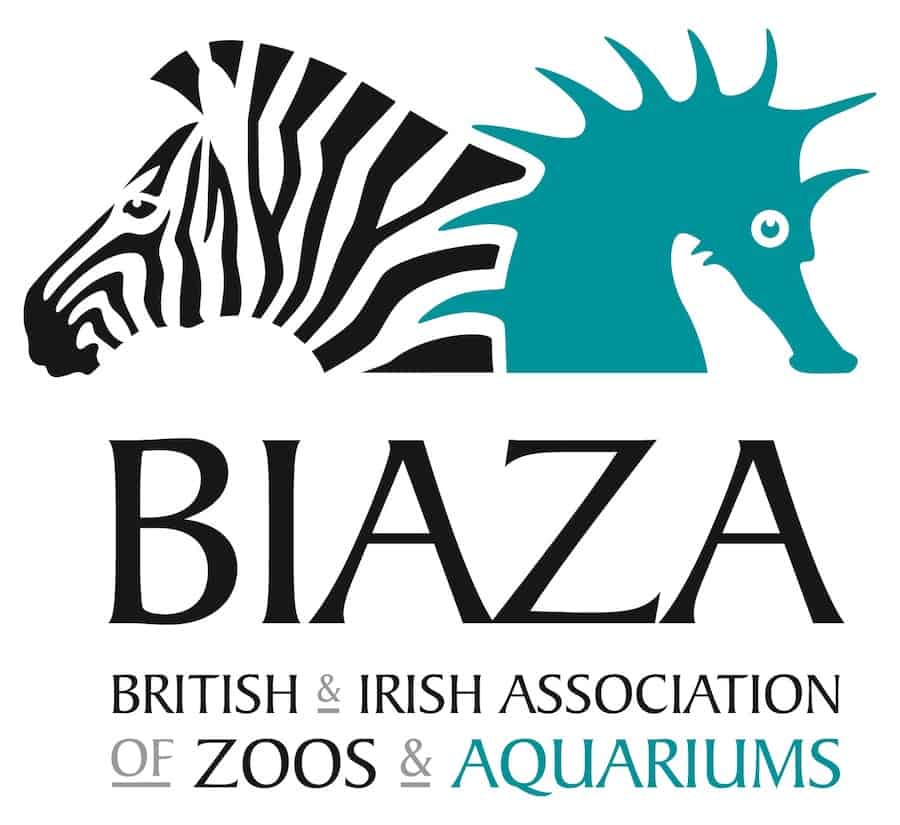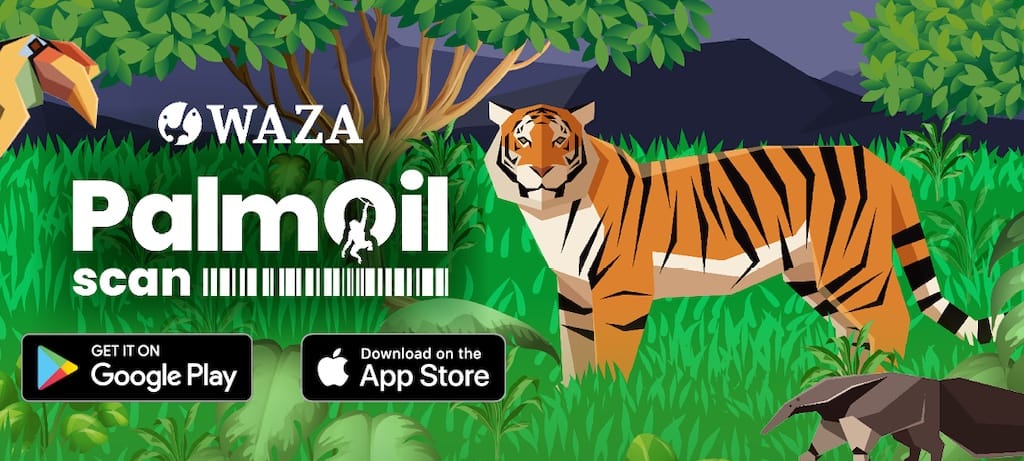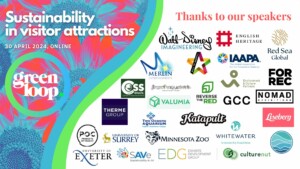As well as being a popular tourist attraction, the UK’s Chester Zoo is also a conservation education charity with a vital mission. As part of the organisation’s ten-year master plan, it aims to make a significant contribution to tackling the global extinction crisis. At greenloop 2022, Cat Barton, field conservation manager at Chester Zoo, spoke about how tackling the issue of palm oil is helping it to achieve these conservation goals.
In 2021, Chester Zoo has announced that four areas across the UK had pledged to become ‘sustainable palm oil communities’, as part of its project to prevent habitat destruction and protect biodiversity. Barton tells us more about the project, which launched in 2019, and explains how movements like this can encourage everyone to make more sustainable choices.
Sustainability at Chester Zoo
Barton begins by outlining Chester Zoo’s ten-year master plan:
“This focuses on four key areas; populations, places, people and policy. And within these areas, we have many different projects around the world and then also locally at Chester Zoo with local communities. These all help us deliver some of these targets that we’ve we’ve set for ourselves.”
The zoo also has three key sustainability targets. It aims to be carbon net zero by 2030, to become a zero waste operation by 2030 and to develop a strategy to achieve 100% deforestation-free commodities within its supply chain.
“My area of particular focus is palm oil, which hits a number of these different targets.”
“We’ve got partners all over the world working on species conservation. One of these partnerships is with an NGO called HUTAN, based in the Kinabatangan region of Sabah, Malaysian Borneo. The Kinabatangan region is a stunning area with a main river running through it. It’s a secondary forest, so it was logged around 40 to 50 years ago, mainly for timber, and it’s grown back.
“It is now home to orangutans, forest elephants, eight species of hornbill, and proboscis monkeys, as well as rare plants and amphibians. It is a really biodiverse area. One of the key threats in this area has been the expansion of oil palm plantations.”
The problem with palm oil
Oil palm is a crop which was introduced from West Africa, and is used to produce a type of vegetable oil. It was introduced into Southeast Asia and now that region grows around 85% of palm oil globally.
Palm oil can come as a liquid or a solid and it can then be used in various products that we use every day.
“It’s thought to be used in around 50% of packaged supermarket products. For instance, it’s in chocolates, soaps, crisps, margarine, animal feed, perfumes and makeup, candles… There’s palm oil in almost everything.
“When it was first introduced, there was a lot of deforestation, a lot of habitat fragmentation, destruction and biodiversity loss,” says Barton. “The resulting monoculture is very different to what a natural rainforest would look like and holds a lot less biodiversity. So, this is one of the key problems in the area that we are working in. This natural forest is almost been taken over, if you like, by these plantations.
“How do we make sure that these plantations and humans can co-exist peacefully alongside animals such as orangutans?
A key conservation issue
85% of the palm oil used in the West is grown in Southeast Asia. It’s also being grown in Latin America and in Africa.
“It’s expanding all over the world, because it is a really productive crop, but it’s generally across the equatorial belt. The IUCN [International Union for Conservation of Nature] did a lot of surveys on palm oil and found that 193 species are impacted by it.”
“When we talk about it at the zoo, we use the orangutan as a focal species. However, palm oil has a massive impact across the world. There are also social impacts; things like slave labour, land grabbing and other human rights issues have been caused by unsustainable plantations and habitat fragmentation.”
Social and environmental impacts of palm oil
Animals can also get trapped and injured due to the slash and burn tactics used by some plantation owners.
“You’ll get species such as orangutans and elephants that can be trapped in a little patch of forest. The only way out is to go into oil palm plantations, where they’re going to come into conflict with forest fires. To clear land for agriculture such as oil palm, fires are lit, and these fires really easily get out of control because a lot of these rainforests are grown on peat soils. When fires occur on peat soils, the fire will burn on the ground.”
“So, you have massive issues with forest fires, which affects not only biodiversity and habitat but also human health.”
Pollution is another outcome, with plantations using pesticides and fertilizers. These chemicals then cause runoff into local rivers. Plus, where rainforests are grown on peat soils, there is carbon stored within that peat. As a result of deforestation, this is released back into the atmosphere.
“Indonesia at one stage was the third largest greenhouse gas emitting country, mainly due to deforestation,” says Barton.
A versatile crop
All this has, understandably, led to a lot of negative views of oil palm.
“A lot of people, when they hear about palm oil, it’s very negative, and the feeling is that palm oil should be banned. But actually, there are a lot of benefits to palm oil as well.”
In fact, palm oil is the most efficient of all vegetable oils.
“To grow one tonne of palm oil, you need 0.26 hectares of land,” says Barton. “That goes up to 1.25 hectares for rapeseed oil, 1.43 for sunflower oil, and up to two hectares for soybean oil. So, it’s the most efficient in terms of yield.
“It’s incredibly versatile as well. The fact that it can be broken down into solids and different derivatives means it can be used in a wide variety of products, so you get more from the crop. Also it’s got really high economic value. There are over four and one half million people employed in the oil industry in Indonesia. A lot of these are local farmers, local people who are just trying to feed their family, growing the crop as their livelihood.”
Chester Zoo & the Roundtable on Sustainable Palm Oil
With this in mind, is there such a thing as sustainable palm oil?
“Not all palm oil is bad,” says Barton. “The RSPO, the Roundtable on Sustainable Palm Oil was set up in 2004 alongside organizations like WWF and some progressive industry leaders.”
To be a part of this scheme, there are certain principles that each company must adhere to. For instance, in 2018, the RSPO put a no deforestation rule into their criteria.
“This was critical and it was something that we as NGOs have been working on for a number of years, to make sure there is no more deforestation for palm oil, no forest fires, no planting on peat. We’ve also been working on getting wildlife corridors built between plantations, to help the movement of animals throughout the area.
Around 19% of the palm oil produced around the world is currently certified with the RSPO.
“It’s still a fairly small number, but for a certification scheme, it’s actually pretty good.”
Chester Zoo’s palm oil mission
When Chester Zoo became aware of the issues surrounding palm oil production, its main goal was to encourage the greater use of sustainable palm oil, says Barton:
“We knew that boycotting palm oil wasn’t going to be a solution. People are always going to use vegetable oils. And of all the vegetable oils, palm oil is one of the most productive. But it has to be grown in the right way. So, working with partners on the ground in Borneo, we are trying to work on that whole supply chain right from the farming in Borneo all the way down to the manufacturing in the UK and hopefully make that whole supply chain sustainable.”
How did the organisation go about engaging people with this topic and increasing the demand for sustainable palm oil?
“Our approach was, firstly, to be a sustainable business ourselves. So, we looked at palm oil within our own procurement.
“Then, we also wanted to engage and inspire people to make a difference in this area. We’re a conservation education charity; we have a phenomenal education and marketing team who are able to put out these messages in the right way, to engage people and inspire them to make a difference, and then be a voice for change and empower others.”
A five-stage journey
Essentially, Chester Zoo knew it had the power to not just impact its own journey, but impact others as well. It embarked on a five-stage journey to achieve this mission.
“The first stage was mobilizing,” says Barton. “This meant looking at our own supply chain and switching to sustainable options. We also worked on building partnerships with suppliers who were willing to go on that journey with us.”
“Once we’d looked at that, we then went to the informing stage. We have millions of visitors every year. Zoos globally have millions of visitors, so we in this community have a huge opportunity to talk to the public. Education is really important for us. We added signage around the areas where orangutans and other species impacted by oil palm were, talking about sustainable palm oil. Plus we encouraged our staff to talk about sustainable palm oil as well. This was really key step.”
Chester Zoo enables informed palm oil decisions
Thirdly, the zoo’s next step was to enable people to make informed decisions:
“It’s actually really difficult to find out if sustainable palm oil is in the products that you use. It doesn’t have to be labelled. In the UK and in the EU, a law that came in in 2014 which said that any vegetable oils on food packaging had to be labelled with individual oils. So, rather than saying vegetable oil on your chocolate bar, it would have to say palm oil or sunflower oil. But the law didn’t say whether it had to be labelled as sustainable or not, and it still isn’t.
“Some companies use the sustainable wording and some don’t. So we felt that enabling people was really key. We put together a sustainable palm oil shopping list to make sure that the public could see which products use sustainable palm oil and which manufacturers were actually going above and beyond.”
Having looked at these barriers, the zoo then moved onto the next stage, engagement.
“We thought about how we’re going to make this fun because sustainable palm oil can get really complicated. Engaging people through fun and easy mechanisms was really important. Now, we have a website full of online resources. We had people doing raps on palm oil. We’ve got a palm oil conga, we’ve got games for children. And our education team go into schools and talk to talk to children and their teachers about sustainable palm oil.
“It’s really important to make it fun and engaging and to get people interested.”
Getting the community involved
Finally, step five of Chester Zoo’s plan to champion sustainable palm oil, explains Barton:
“We really wanted to increase demand for sustainable palm oil, one business at a time. We started with ourselves and then we moved on to others in the community. And what we did was we set up a behaviour change campaign, which we launched in 2017. This was called Sustainable Palm Oil City. Our aim was to make Chester the world’s first Sustainable Palm Oil City.”
“We did a lot of research into sustainable palm oil at the time. Food hospitality was really behind retailers in terms of sustainable palm oil. A lot of the big retailers and supermarkets in the UK at the time were already using sustainable palm oil. But restaurants and hospitality suppliers weren’t there yet.
“To begin with, we really targeted the food hospitality sector. We also looked at the barriers. What was it that people were missing? And a lot of the feedback that we got was just education. People didn’t know about it. People didn’t know how to source sustainable palm oil. They didn’t know what it was and they didn’t know if it was good or not. So we really started to look at breaking down those barriers.
“In 2019, we became the first Sustainable Palm Oil City in the world.”
Chester Zoo’s Sustainable Palm Oil City
As part of this journey, Chester Zoo worked with an organization called Sustain.
“They had a campaign called Sustainable Fish Cities. This was important to us as well because there was already a model for sustainable fish cities, which we could use. It wasn’t about reinventing the wheel; it was using what was already out there and adapting it.”
Cat BartonIt wasn’t about converting every single organisation in Chester. It was about being able to reach that tipping point and make that change through the supply chains
“Within the criteria, there’s a five-star system. Looking at the size of Chester, we worked out how many organizations within each star system we needed. So for us, we needed 25 restaurants, cafes, hotels or fast food outlets, five workplaces, two out of five schools, colleges, universities, and hospitals, for example, three visitor attractions and three manufacturers or retailers based in the city.
“The aim was to work with those organizations on their sustainable palm oil procurement. What we found was that it only took, in one instance, a few restaurants to contact their supplier, who was a shared supplier, to encourage that supplier to move towards RSPO certification and become certified. So, it wasn’t about converting every single organisation in Chester. It was about being able to reach that tipping point and make that change through the supply chains.”
The project expands
Giving an example of this, Barton says:
“One of the biggest wins we had was Edsential. This is a supplier that provides school meals to pretty much all of the primary schools within the Cheshire region. That adds up to millions of school meals every year. That supplier actually became RSPO certified itself, which means that all those schools that were supplied by them immediately became sustainable palm oil schools.
“Because it was a success and we saw the impacts that we had from it, we actually changed the name of the campaign from Sustainable Palm Oil City to Sustainable Palm Oil Communities. We were contacted by so many different organizations who wanted to run it in their area and use what Chester had done.”
“It was really important to us to be able to spread that out and make it national and even international. So we’ve got different organizations and people working with us now who are making their own areas sustainable. We’ve got another zoo in Newquay which is working on the project. There is an Orangutan Society in Oxford which is leading the project there. We’ve also got a small village in Wales where a local primary school is actually running the project and trying to convert the businesses there to become sustainable.
“Then, we’ve got the whole county of Dorset looking to become the first Sustainable Palm Oil County. We’re going wider than that as well. We’ve got a couple of different organisations internationally that we are working at the moment and we’re really keen for anyone else to join us.”
Collaboration is key
For Chester Zoo, collaboration is key to making these palm oil campaigns a success.
“We all need to work together on this,” says Barton. “There’s no point in one organisation doing a piece of work and letting it stick with them. For us, it’s collaboration. It’s passing on our resources and letting other people run it in their areas.”
Cat BartonWe adapted things as we went on. We always feel that sustainability is a journey. As we found different areas that were challenging, we adapted guidelines and moved on to the next step. Now we’ve got a good set of guidelines and toolkits that we can pass on to other people
The organisation provides step-by-step guidance for the Sustainable Palm Oil Communities scheme. This builds on what went well and what didn’t work so well when it first launched the campaign in Chester.
“It took us two years to get there! So, we looked at all the different areas that did go wrong. We adapted things as we went on. We always feel that sustainability is a journey. As we found different areas that were challenging, we adapted guidelines and moved on to the next step. Now we’ve got a good set of guidelines and toolkits that we can pass on to other people.”
Getting everyone at Chester Zoo on board with sustainable palm oil
Success also depends on getting buy-in from the whole organisation:
“Director and trustee support were crucial for us and we needed the support of the organisation to be able to run this project. It very much fits with our mission. And the staff buy-in was really important as well.
“We started working on palm oil about eight years ago. It was still very negative. Everyone wanted to be palm oil free; they didn’t understand the concept of sustainable palm oil. There are around 600 to 700 members of staff at the zoo, so educating the staff on that was important because they’re the ones that speak to the public.”
“We had marketing teams, shop teams, cleaning teams, and education teams all joining us for half an hour sessions on sustainable palm oil. We got their buy-in and made sure that it really was a choice to do a full Chester Zoo project.
“The procurement team relationships were important too. The procurement teams work separately, if you like, to the field programs and the conservation teams. It was important for us to make sure that they understood why we needed to go for sustainable palm oil, and the impact it was going to have. This meant that they could pass that on to their suppliers and help their suppliers change.”
Chester Zoo’s sustainability journey
One of the key messages that ran through the greenloop 2022 conference was that sustainability is a long-term commitment that is always evolving; it is not something that just happens overnight. Barton echoes this:
“We always say sustainability is a journey. We’ve changed our palm oil policy as we’ve gone along, we’ve adapted and things have changed. The RSPO and the certification schemes are stronger now and we’ve got new deadlines in place.”
Cat BartonIt’s really important to make sure that we don’t just set one target and stick to it. Things change, and new information comes to light. We are able to adapt to make sure we have the impact we want at the end
“It’s really important as well to make sure that we don’t just set one target and stick to it. Things change, and new information comes to light. We are able to adapt to make sure we have the impact we want at the end.”
Power in numbers
Chester Zoo is also ensuring that it collaborates with others across the sector.
“Palm oil is used in veterinary supplies and animal feed industry, which obviously also impacts animal welfare from our side. Having a zoo community goal on this was really important. We’re working with membership organisations, such as the British and Irish Association of Zoos and Aquariums [BIAZA] and the World Association of Zoos and Aquariums [WAZA].
“We’re working together with those membership bodies because together we’re all procuring very similar areas. Especially with the veterinary and the animal feed side. We’re making sure we’ve got that collaboration and we’re impacting suppliers together, so it’s not just one lone voice.”
Incentives are key too:
“When we created a sustainable palm oil shopping list, we wanted to celebrate the companies that were doing the right thing. We just felt it was really important to shout about the positives and encourage others to join in. We found that really worked and we developed some really key partnerships off the back of that.”
Chester Zoo & the future of sustainable palm oil
In August 2022, WAZA announced the launch of a new mobile app called PalmOil Scan. This has been developed by the WAZA Palm Oil Subcommittee and its member institutions Cheyenne Mountain Zoo representing the United States and Canada, Chester Zoo representing the United Kingdom, and Auckland Zoo representing Australia and New Zealand.
Users can simply scan a product’s barcode and learn whether or not the company that makes it has a commitment to sourcing certified sustainable palm oil. It is now available in the US, Canada and UK, with plans to roll it out to more countries later this year.
WAZA members will be able to become app administrators. Cheyenne Mountain Zoo is currently the admin for the US and Canada, and Chester Zoo is admin for the UK. Their responsibility is to monitor the sourcing commitments of companies sourcing palm oil and operating in their regions.
Reflecting on the success of its sustainable palm oil projects so far, Barton finishes by emphasising:
“We’ve not been able to do this alone. We’ve got partnerships with other NGOs, with companies on the ground, with retailers, with manufacturers. It takes everyone working together to make this a reality.”
Chester Zoo is working with other communities across the UK and is keen to expand the programme internationally. To find out how to get involved click here.

